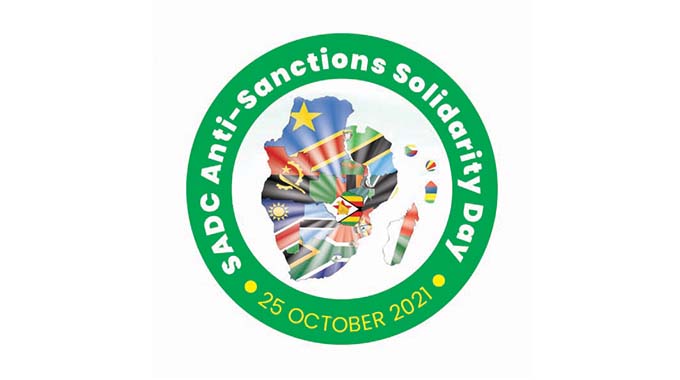Sanctions: Foundries shed 20k jobs

Patrick Chitumba, Midlands Bureau Chief
THE Zimbabwe Institute of Foundries (ZIF) was forced to retrench more than 20 000 employees as the illegal sanctions took a toll on exports of foundries.
ZIF said the illegal sanctions, imposed on Zimbabwe more than 20 years ago, have hampered growth and exports into global markets.
Apart from discouraging foreign investors from coming to Zimbabwe, the sanctions have seen many local companies fail to retool or get working capital to sustain operations.
ZIF has called for the removal of the illegal economic embargo imposed on Zimbabwe by the United States and other Western countries as the unilateral punitive measures were making ordinary people suffer like the families of the 20 000 employees who lost jobs when foundries companies were forced to fold due to operational challenges.

ZIF chief operating officer Mr Dosman Mangisi
ZIF chief operating officer Mr Dosman Mangisi said a lot of foundries companies closed because of the illegal sanctions.
“The illegal sanctions also targeted our imports and exports movements which made it challenging for us to import spares and other machines and export finished products. As a result, a lot of companies were forced to fold. In the process ZIF was forced to retrench over 20 000 employees as the illegal sanctions took a toll on exports of foundries,” he said.
Mr Mangisi said there were about 60 operational metal foundries in Zimbabwe including steel plants.
He said 30 were non-operational due to a shortage of scrap metal and unavailability of raw materials for production locally because of the illegal sanctions.
“We want the sanctions removed as we aim at creating the ease of doing business in metal casting through the availability of raw materials to promote the growth of metal exports to grow the country’s economy and give significant strength to the local currency and new technologies in the metal casting industries,” said Mr Mangisi.
According to a recent report by the United Nations Special Rapporteur on the negative impact of the unilateral coercive measures on the enjoyment of human rights Professor Alena Douhan, the sanctions imposed on the country facilitated de-industrialisation, as key agriculture, mining and manufacturing companies were barred from selling their products to the United States and European Union markets.
The economic contraction went from -3.1 percent in 2000 to -17.7 percent in 2008.
Thousands of workers were forced out of employment in the formal economy, and multiple local companies closed down.
Prof Douhan urged the United States to unconditionally remove unilateral sanctions on Zimbabwe.
She compiled the report after visiting Zimbabwe where she engaged with stakeholders across the political divide.
Business Economic Empowerment Forum (BEEF) president, Dr Solomon Matsa, said the illegal sanctions are evil since they are being used to escalate the cost of doing business for Zimbabwean companies.
“The West has a big brother attitude thus when the big brother says don’t work with Zimbabwe many nations fear victimisation thus, they also refuse or fear to do business with us on our terms. This is also being used to escalate the cost of doing business for us resulting in expensive production due to their world rating, making us a very risky country,” he said.
Dr Matsa said Zimbabwean companies are getting “expensive money” when borrowing from international finance companies.
“Even people in their private capacities are affected equally. These sanctions are just making all things difficult in all industries and economic activities so that we remain desperate and marginalised while they take our natural resources for a song,” he said.
Dr Matsa said with President Mnangagwa leading with developmental strategies, the economy could have grown magnificently if the sanctions were removed.
The sanctions, he said, are just a huge drawback on anything the country is doing.

Zimbabwe Revenue Authority (Zimra)
“To counter sanctions, the private sector and the Government must aggressively ensure business is given to local people so that we have our money circulating among our people. Zimbabweans must also embrace the opportunities upon us in mining, agriculture, construction and procurement so that we develop our country ourselves by producing all things in demand for Zimbabweans first,” said Dr Matsa.
He urged the Zimbabwe Revenue Authority (Zimra) to share with the nation every month what the country is spending on imports and the products being imported so that people know what to urgently venture into so that foreign currency demands are reduced.
“The focus is on fulfilling local demands on manufacturing goods needed in the country now to complement our businesses with some businesses which raise the necessary forex to acquire our external needs and work on sustainable financial modelling of business so that we keep up with the changing environment influencing Government policies to move with the time,” he said.

Zimbabwe National Chamber of Commerce (ZNCC).
Zimbabwe National Chamber of Commerce (ZNCC) past president Dr Tinashe Manzungu said because of sanctions, the economy is battling for life in terms of lost gains from trade and investment.
He said the country’s Balance of Payments (BoP) position has deteriorated since the imposition of the illegal sanctions.
“Our access to international credit markets was blocked after the enactment of Zimbabwe Democracy and Economic Recovery Act (Zidera). This unfavourable development has worsened our creditworthiness as the country’s international financial risk profile has escalated,” he said.
Today, Dr Manzungu said Zimbabwean banks and money transfer agencies are facing problems owing to the termination of correspondent bank arrangements with international financial institutions.

Zimbabwe National Chamber of Commerce (ZNCC) past president Dr Tinashe Manzungu
He said businesses face many barriers to entering the European market because of trade imbalances.
“Exports costs for Zimbabwean businesses are high and the requirements for our goods to enter the markets are needlessly cumbersome. After all, potential investors fear blacklisting for investing in Zimbabwe,” he said.
Dr Manzungu said while they are still lobbying for the immediate removal of economic sanctions there is need to boost resistance to the sanctions by developing an import-substituting industry and engaging sanction busters to create and sustain loopholes in the sanctions thus undermining their effectiveness.












Comments